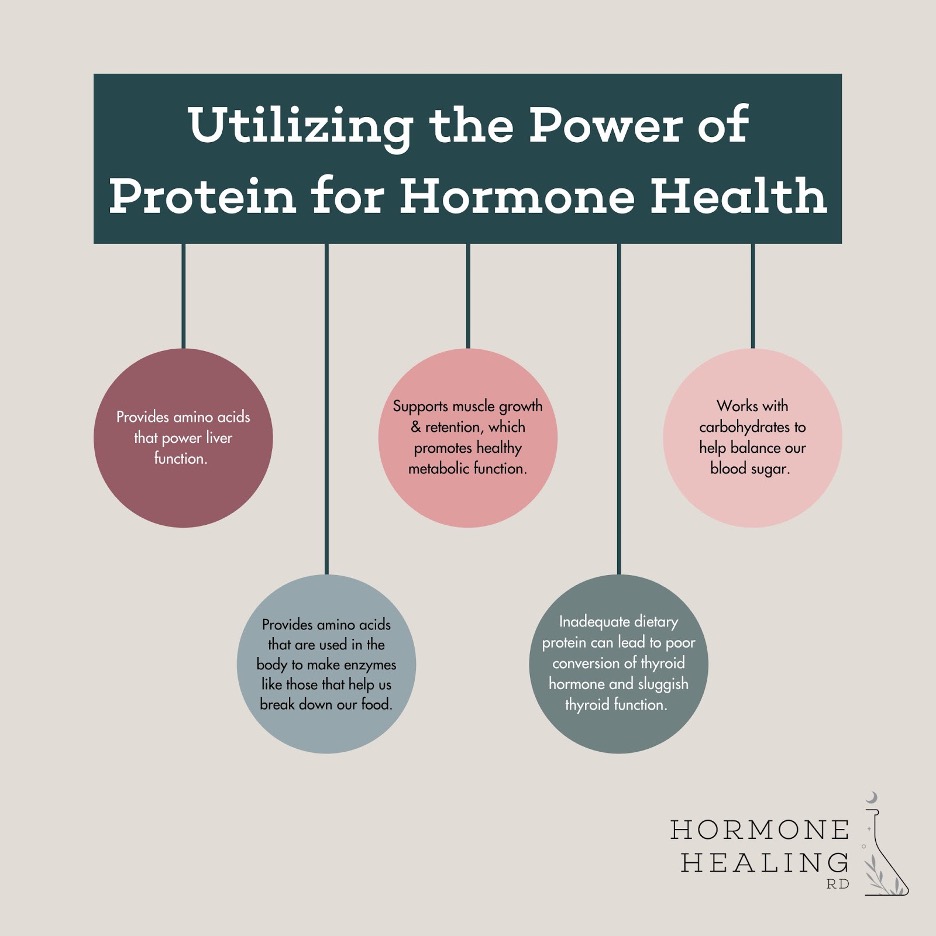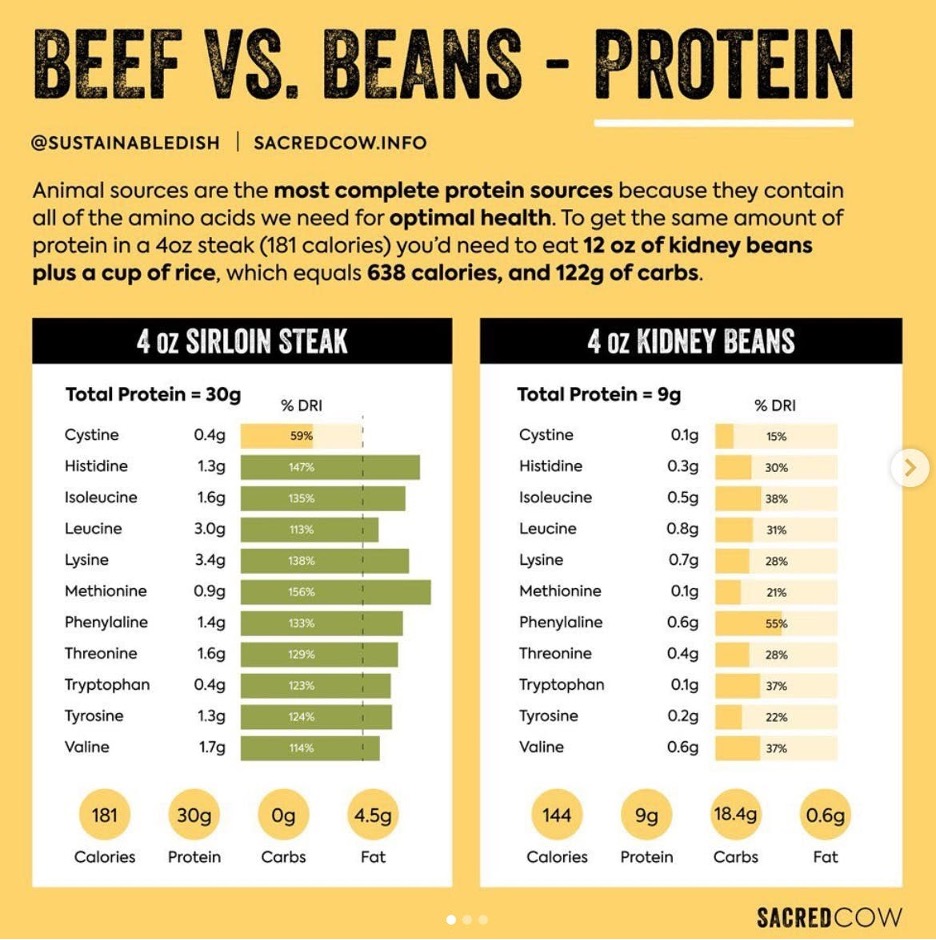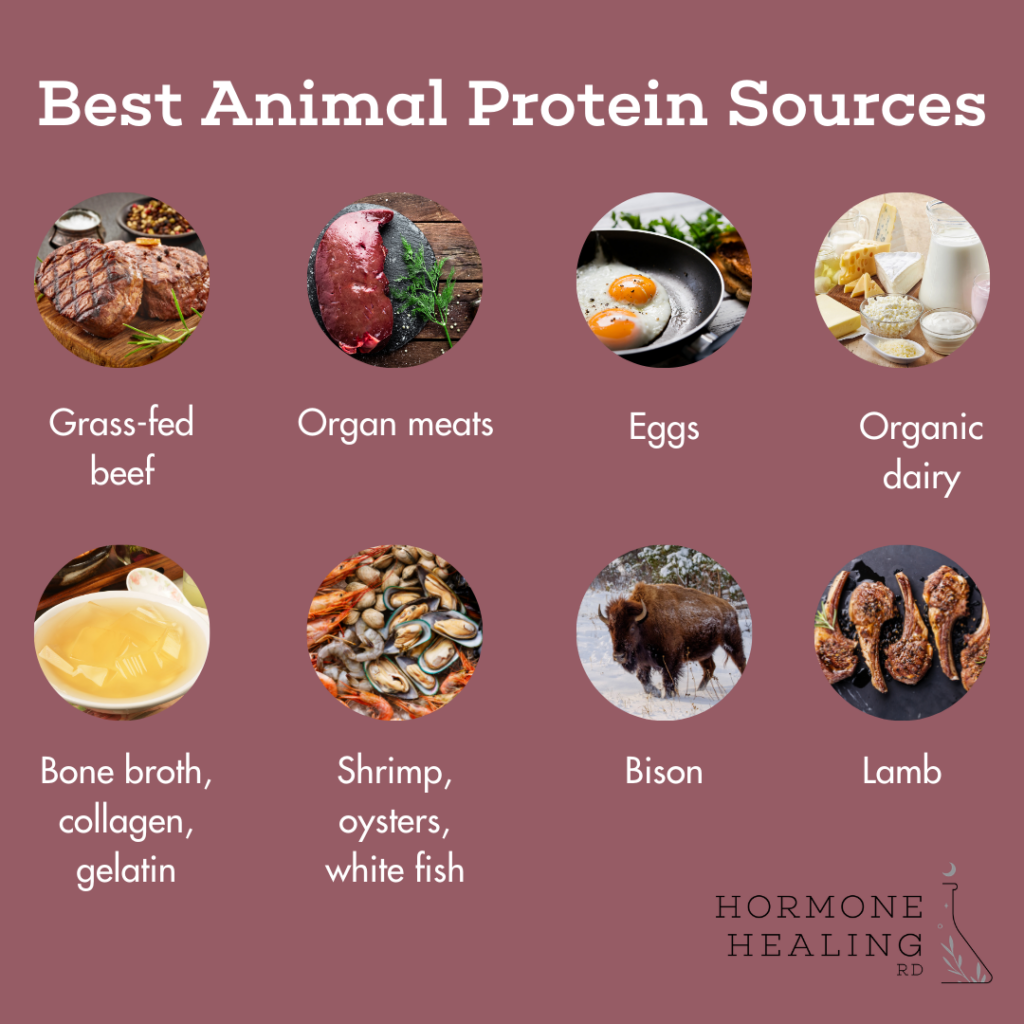There is a lot of talk about how important carbohydrates are for hormone health, which is true, but we can’t forget about protein. The truth is, without quality protein to balance out carbohydrates, they aren’t as powerful to the body. When we aren’t pairing protein and carbohydrates together, it’s like we are taking out a loan for energy for the body. We are asking our bodies to use a backup energy source all of the time, which is only meant to be used in small amounts. When we pair protein and carb together, we provide our bodies with the nutrients they need to thrive. That’s why today, we are focusing on utilizing the power of protein for healthy hormones.

Why is protein so important for hormone health?
Protein has A LOT of uses in the body. The five below are the main functions of protein related to hormone health but are not exhaustive for everything we use amino acids for in the body.
Not All Protein Are Created Equally
This is very important. Diana Rodgers, RD, and founder of Sustainable Dish, does a great job of breaking down the differences between animal proteins and plant-based proteins in this post. When I say protein, I am referring to animal proteins. I do not recommend plant-based forms of protein. Why?
When I think of eating for hormone health, I think of making things easier on the body. Including animal protein does this since they are easier to digest and absorb nutrients from and are a complete nutrient source, meaning you won’t need to worry about specific nutrient deficiencies when eating them. When eating a vegan diet that doesn’t contain any animal proteins, you typically make digestion harder, eat foods that don’t meet 100% of nutrient needs and have a hard time balancing blood sugar. This pushes the body further into stress and is not ideal for hormone balance.

My Favorite Proteins
When I think about recommending proteins for clients to prioritize, I factor in the quality, amount of other nutrients like vitamins and minerals, and other healing properties (supporting digestion, reducing inflammation). With all of that in mind, these are my favorite proteins to include:
*These are higher in polyunsaturated fatty acids or PUFAs and lower in vitamins and minerals. It doesn’t mean we should never have these foods, but many people limit red meat and eat more of these, so I always like to point this out. What is the issue with PUFAs? They are not as stable and supportive of our hormones as saturated fats are. If you’re thinking, “Wait, what?! I thought saturated fats were bad,” please read this blog post.

Red meat, organs, seafood, eggs, dairy, bone broth, and gelatin provide the most bang for your buck when it comes to vitamins and minerals per serving. You would have to eat an incredible number of plants to meet the same micronutrient content of these foods. If you aren’t currently eating animal proteins, I recommend starting with bone broth, gelatin, collagen, and eggs. I have a blog on the benefits of gelatin that includes a recipe for delicious gummies; check it out here. These animal protein foods are easy to digest and are a great way to ease in. If you feel that you don’t digest animal protein well, consider using apple cider vinegar (1-2 tsp) before meals.
I would just like to normalize eating animal foods for hormone health since I see so many women fear these when they are the ones that often help them the most. Protein, specifically animal protein foods, packs one powerful nutrient, especially when it comes to hormone health. Protein is beneficial to our hormone health because it optimizes liver function, digestion, muscle growth and retention, thyroid conversion, and blood sugar balance. I hope you found this information helpful.
